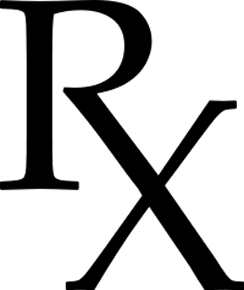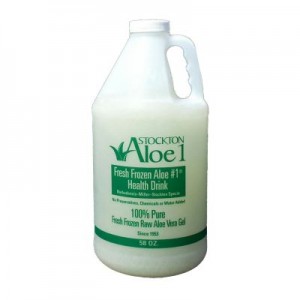
Aloe vera is the plant most often relied on for severe sunburn relief

That is why Mayo Clinic dermatologist, Dr. Lawrence E. Gibson, lists Aloe gel and lotion as an integral part of a >recommended home remedy regimen. That is why the Huffington Post lists Aloe in the number one spot on it’s list of ten natural sunburn remedies. And that is why Rodney Stockton, in 1941, began looking for a way to treat severe sunburn.
The truth is, of course, Aloe isn’t a 20th century development. Thousands of years ago, people were treating all types of burns, seeking to ease internal problems, and hoping to maintain the health of skin tissue by making abundant use of Aloe vera gel.
And for as long as many of us can remember, the primary means of protecting against getting a sunburn in the first place is to liberally apply a laboratory-made concoction known as “sunscreen.” The practice has become so prevalent the almost universal opinion is that a responsible parent would never allow children to spend much time outdoors without the protection of a sun-blocking lotion or spray. To do otherwise is negligent and foolish.
Some doctors now say, though, that sunscreen may be dangerous
Popular television personality and heart surgeon, Dr. Oz, recently shook our suppositions about sunburn prevention with this question: “Sunblock: it’s designed to protect you … [but] could your sunscreen be dangerous?”
“There is a growing concern,” said the doctor, “that the very thing you use to protect your skin may cause rashes, hormonal problems — and some even suggest — cancer.”
The problem, it seems, is that science has once again run ahead of common sense. You can’t rub chemicals on your skin with impunity. Your skin allows direct access to your internal systems.
You mean it isn’t safe to use sunblock?
Sunscreen is a billion-dollar industry, and the advertisements would have you believe a blocking agent is not only advised, but necessary, for anyone planning to be exposed to the sun. “Good parents” keep plenty of sunscreen handy for that trip to the beach — right? Argue against the idea and you may as well talk dismissively about baseball and apple pie.
Columbia University professor and board certified plastic surgeon, Arthur W. Perry, doesn’t see it that way, though. He says the chemicals in sunblock products don’t just remain dormant on the surface of your skin. Rather, they are absorbed into your system, where they can possibly cause extensive damage.
Those chemicals, Dr. Perry observes, are more accurately known as “endocrine dispruptors.” And those disruptions, he warns, can potentially lead to cancer — especially, he fears, to breast cancer.
Other endocrine disruptors you may have heard about, by the way, are dioxin and DDT.
Another concern Dr. Perry expresses is for pregnant women. The chemicals in everyday sunscreens can affect the fetus. Endocrine disruptors can lead to early puberty in girls and small testicle size, with lowered sperm counts, in boys. Should we really be slathering our children with sunscreen every time they go outside?
How big is the potential for harm? Dr. Perry observes that we put “huge quantities” of sunscreen on our bodies and the chemicals in their formulas go “all through [the] body, “where they “can interfere with every organ.”
Should eye doctors sell glasses?
That was the title of my first talk in my high school speech class. I took the material from a Reader’s Digest article of the same name, and the concept fascinated me then, as it does now. Is the temptation for personal gain something that should be separated from the medical professions?
No other business has such restraints. American capitalism is built upon the principle of one getting amply rewarded for his or her knowledge and ambition. However, we tend to place medicine into a different category than other business pursuits. Medical people, we figure, should be above reproach.
Would you think less of your optometrist if she prescribed glasses for you, then turned you over to her sales staff for a fitting? It is common practice for optical dispensaries to offer eye exams on site, though they separate the two functions to avoid confusion and an appearance of self-interest. A sceptical customer might balk, if it seemed the optometrist and optician were working hand-in-hand to build business.
Let’s take the idea of self-interest further

Would you discount Dr. Perry’s concerns if you knew he has designed a “safe sunscreen”? (And he has.) For that matter, would you wonder about Dr. Haley’s intentions if you visited his office for chiropractic treatment and he spoke with you about how drinking raw Aloe gel could benefit your health?
We are a suspicious lot, aren’t we? And for good reason. There are hucksters on every corner, waiting to take the fool’s money. Come to think of it, the pharmaceutical industry is absolutely interested in seeing their “cures” prescribed by doctors. Some would even say a typical marketing ploy of drug-makers is to invent medical problems they can then prescribe medicines to address. “High cholesterol,” for instance, is a widely debated concept.
Here is the other side of that reasoning: Who is better equipped to advise you on issues pertaining to health and biology than someone trained in those disciplines? And wouldn’t you hope–even expect–that a physician who discovered something potentially crucial to your health would recommend what he or she considers to be the best solution?
How can Aloe vera help prevent sunburn?
In a previous article, we spoke about “preventing sunburn from the inside out.” It is a concept first introduced here through Dr. Haley’s writings. The concept is both profound and simple.
Everyone knows a good hat, long-sleeved shirt, and proper covering for the legs can prevent sunburn. There are even companies that specialize in sun-savvy clothing. Dr. Haley seldom spends long hours in the sun without wearing his favorite hat. It’s only common sense.
But, did you know there are also internal precautions you can take to protect against the sun?
In his article about how rosacea can be helped by drinking Aloe gel, Dr. Haley pointed out that the stomach is really an “external organ.” Now, that takes some thought–but the idea is that the lining of the stomach, just like the skin on your arms, is a barrier between your inner systems and your outer systems. The doctor likens taking food into your stomach to poking your finger in a balloon: your finger appears to be inside the balloon, but really … it is still outside.
Your skin and your gut are intrinsically connected. Moreover, just as providing water and nutrients to a plant can have a profound effect on the appearance of the leaves, so the foods you choose to eat and drink are reflected in the makeup of your skin.
That is why you can modify the way your skin reacts to the sun by consuming (or not consuming) certain things. Have you ever taken a medication (certain antibiotics, for instance) that came with a warning saying you should “avoid prolonged or direct sun exposure”? That is because some substances cause your skin to be hyper-sensitive to sunlight.
The reverse is also true.
When you drink raw Aloe gel, its anti-inflammatory and antiviral properties go to work, helping to soothe your intestinal  (gut) system. Moreover, Aloe vera is a “superfood.” It is loaded with vitamins, minerals, amino acids, and other phytonutrients that help nourish the skin from the inside out.
(gut) system. Moreover, Aloe vera is a “superfood.” It is loaded with vitamins, minerals, amino acids, and other phytonutrients that help nourish the skin from the inside out.
The end result can be skin that is healthier and better able to tolerate solar radiation. Additionally, since Aloe is a rich source of antioxidants, the free radical threat from sun exposure is lessened, meaning Aloe not only helps skin resist adverse effects from the sun, but serves up antioxidants to assist in stopping free radical activity and the resultant damage they can inflict upon cells.
Maybe sunscreen isn’t such a great habit?
The argument over whether regular sunblocks hurt more than they help is a flammable topic. Folks can get really hot over it. Our goal here isn’t to persuade you either way — just to do our best to make sure you are aware of the issue. For years, most people have considered the use of sunscreen a “no-brainer.”
We could have been wrong.
One thing I do know: there are no harmful chemicals or preservatives in Stockton Aloe 1 Gel or Aloe Cream.
Stockton doesn’t produce products designed to sit on the shelf as long as possible. Mine arrives at the door cold, and that is how I keep it. I do the same with other natural products–preferring results and safety over years of shelf life.
ref: http://www.mayoclinic.com/health/sunburn-treatment/AN01423